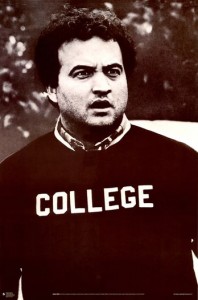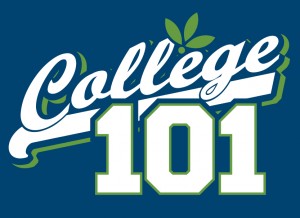Taking stances can cost one a job
As anti-Israel forces on and off campuses continue to protest, some employers are launching counterprotests of their own – firing or refusing to hire those who go public with pro-Palestine stances. The trend reflects an unsettling truism about free speech: it may be anything but “free,” as speakers have to live with the consequences.
Take, for instance, the cases of two global law firms – New York-based Davis, Polk & Wardwell and Chicago-based Winston & Strawn. Davis Polk revoked job offers to three law students at Columbia and Harvard because they were leaders in student organizations that had backed letters blaming Israel for Hamas’s savage Oct. 7 attacks. Similarly, Winston & Strawn revoked an offer to an NYU student, the former president of the school’s University Bar Association, who had written a message to the group, saying “Israel bears full responsibility for this tremendous loss of life.”
Neil Barr, chair and managing partner of Davis Polk, told The New York Times that the firm did not want to employ anyone who endorsed the Hamas atrocities.
“The views expressed in certain of the statements signed by law school student organizations in recent days are in direct contravention of our firm’s value system,” the firm said in a statement. To ensure that “we continue to maintain a supportive and inclusive work environment, the student leaders responsible for signing on to these statements are no longer welcome in our firm.”
Davis Polk noted that in two of the cases, it was considering reversing course and hiring them because they said they had not endorsed the criticism of Israel. The letters blaming Israel for Hamas’s attack did not include individual names. It’s not clear what the law firm knew or didn’t know about the students, other than that they were leaders in the group or groups that backed the statements.
As for the NYU student who lost an offer at Winston & Strawn, that person has doubled down on the criticism of Israel. Ryna Workman, who appeared on ABC defending Palestine and criticizing Israel, was caught on camera covering up posters of Israelis kidnapped by Hamas with pro-Palestine signs. Appallingly, Workman repeatedly ducked questions about whether she – or “they” as Workman prefers – had any empathy for Israeli victims.
Workman was ousted by NYU law school Dean Troy McKenzie as head of the student bar association. Other members of the group had quickly distanced themselves from Workman, saying they mourned “the tremendous loss of human life,” while sidestepping any specific condemnation of Hamas. Subsequently, all members of the association quit, saying they feared for their safety, and the group disbanded.
As many American business leaders remain horrified by the Hamas atrocities, some say they will refuse to hire students who take stances similar to Workman’s. Some major Wall Street investors, including hedge fund chief William Ackman, have called on companies to blacklist members of groups that have taken pro-Hamas stances. Ackman, a Harvard graduate, also demanded that Harvard release the names of such students.
As reported by Forbes, Ackman tweeted that “a number of CEOs” approached him, asking for the student names to ensure “none of us inadvertently hire any of their members.” One CEO, Jonathan Neman of the healthy fast casual chain Sweetgreen, responded to Ackman’s post on X, saying he “would like to know so I know never to hire these people,” to which healthcare services company EasyHealth CEO David Duel responded: “Same.”
Still other outfits have canned those who refused to condemn Hamas or backed Palestinians. Artforum fired its top editor, David Velasco, after a call for a ceasefire, signed by thousands of artists, appeared on the publication’s website.
“We support Palestinian liberation and call for an end to the killing and harming of all civilians, an immediate ceasefire, the passage of humanitarian aid into Gaza, and the end of the complicity of our governing bodies in grave human rights violations and war crimes,” the letter said.
As reported by ARTNews, a sister publication, Artforum publishers Danielle McConnell and Kate Koza in a statement wrote, “On Thursday, October 19, an open letter regarding the crisis in the Middle East was shared on Artforum’s website and social platforms without our, or the requisite senior members of the editorial team’s, prior knowledge. This was not consistent with Artforum’s editorial process. Had the appropriate members of the editorial team been consulted, the letter would have been presented as a news item with the relevant context.”
Velasco was fired soon after high-profile dealers, artists, and other signed another letter that referred to “an uninformed letter signed by artists who do not represent the artistic community at large,” ARTNews reported. This new letter, titled “A United Call from the Art World: Advocating for Humanity,” referred to the Hamas attack, but not to Gazans caught up in the warfare.
For his part, Velasco, who had worked at the publication since 2005 and served as editor since 2017, was unrepentant in comments in The New York Times. “I have no regrets,” he told the paper. I’m disappointed that a magazine that has always stood for freedom of speech and the voices of artists has bent to outside pressure.”
As the Times reported, the initial letter was widely condemned, drawing responses by figures in the art world. On WhatsApp, campaigns were organized to dissuade advertisers from working with the magazine.
Similar actions are occurring at other media outlets. The board of the British-based biomedical and life sciences journal eLife fired editor-in-chief Michael Eisen, after he praised The Onion for a satirical post headlined “Dying Gazans Criticized For Not Using Last Words To Condemn Hamas.”
As reported by NBC News, Eisen, who is Jewish and has family in Israel, posted that he had been fired “for retweeting a @TheOnion piece that calls out indifference to the lives of Palestinian civilians,” he wrote on X, the platform formerly known as Twitter.
“I expressed my opinion, an opinion about the way that American institutions, especially universities, have been kind of not expressing equal concern for the deaths of Palestinians as they have Israelis, which I think is a moral mistake and a political mistake,” Eisen told NBC. “I don’t think that Israeli scientists should feel like the scientific community does not have their backs. The support has been very strong — I thought it was obvious. People don’t always express themselves well in these situations. I wish I made clear how I empathized with them, too.”
Similarly, PhillyVoice.com canned a sports reporter after he tweeted his “solidarity” with Palestine. The Philadelphia 76ers organization tweeted on X: “We stand with the people of Israel and join them in mourning the hundreds of innocent lives lost to terrorism at the hands of Hamas,” along with the hashtag #StandWithIsrael. As The Guardian reported, journalist Jackson Frank, who covered the team, responded: “This post sucks! Solidarity with Palestine always.”
And then there are the doxxing trucks. Operated by the group Accuracy in Media, these mobile billboards have shown up at campuses including Columbia, Harvard and Penn showcasing the faces of members of anti-Israel campus groups. The trucks are emblazoned with legends such as “Harvard’s Leading Antisemites.”
While AIM leader Adam Guillette argues the trucks merely “amplify” information, they have drawn heat as amounting to harassment. The Harvard Hillel Jewish center “strongly condemns any attempt to threaten and intimidate” students who signed the letter, Harvard’s student newspaper the Harvard Crimson reported. And the University of California Berkeley law school dean Erwin Chemerinsky called the truck “despicable,” the New York Times reported. Columbia University president Minouche Shafik issued a statement before the latest truck appeared on the university’s campus, saying some Columbia students “have been victims” of doxxing, calling it a “form of online harassment” that will “not be tolerated,” according to Forbes.
Some demonstrators at Drexel and Penn universities covered their faces and declined to speak publicly, saying they feared being targeted by university officials or losing financial aid, according to The Philadelphia Inquirer. Some noted the doxxing trucks and pointed to a man filming demonstrators on his phone. A Penn alumna at the rally complained, “The surveillance, harassment, and intimidate of these young people is like no other.”
In the academic world, few would dispute that the free exchange of ideas – even noxious ones – should be free of punishment. Students, especially, should be able to speak their views and debate without fear.
However, employers are also free to shun those whose views they find reprehensible. The world off campus is a lot harsher.
As the New York Times reported, in another social media post, hedge fund manager Ackman said he was “100% in support of free speech.” But, he added, “one should be prepared to stand up and be personally accountable for his or her views.”







